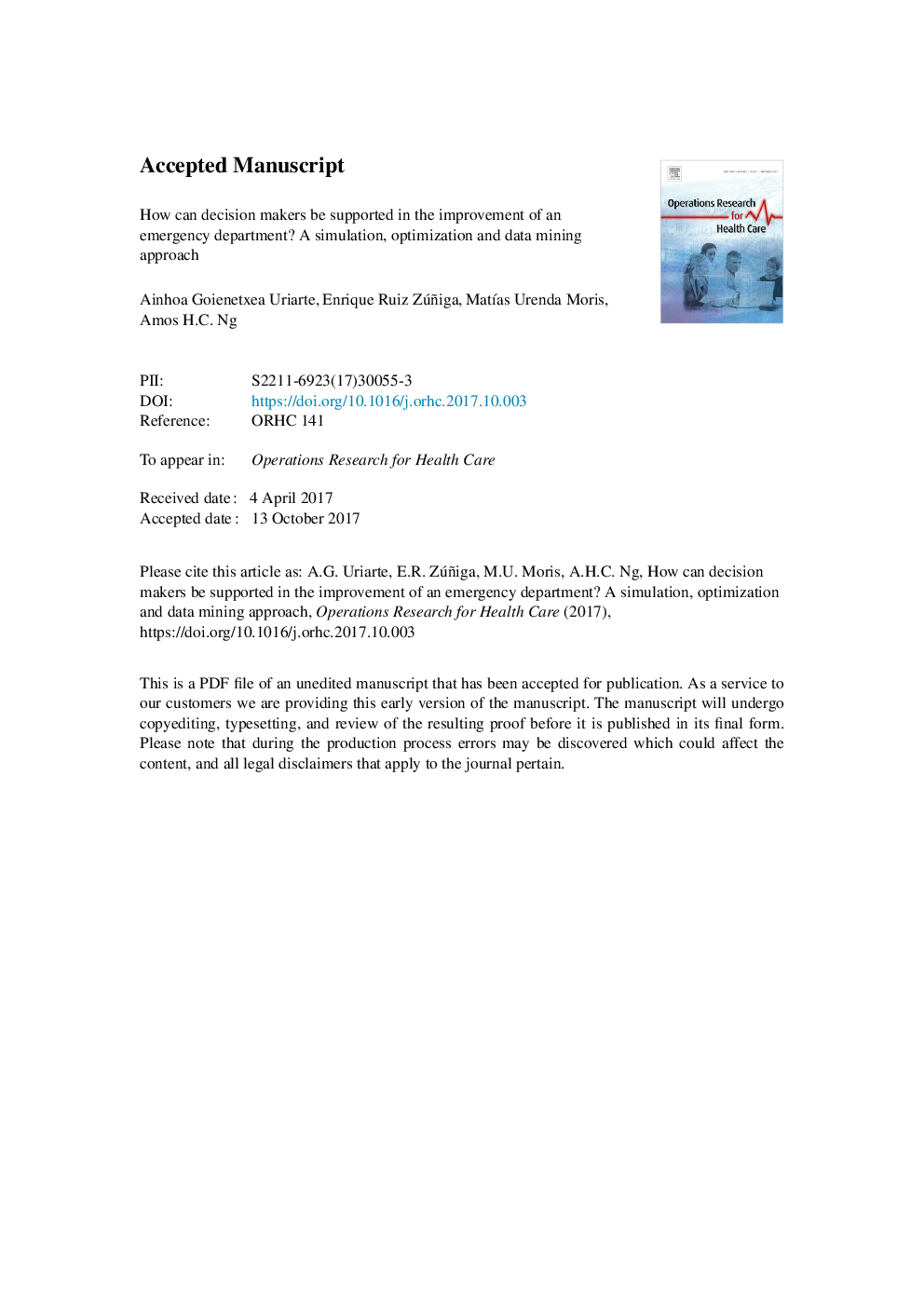| Article ID | Journal | Published Year | Pages | File Type |
|---|---|---|---|---|
| 7543589 | Operations Research for Health Care | 2017 | 37 Pages |
Abstract
The improvement of emergency department processes involves the need to take into consideration multiple variables and objectives in a highly dynamic and unpredictable environment, which makes the decision-making task extremely challenging. The use of different methodologies and tools to support the decision-making process is therefore a key issue. This article presents a novel approach in healthcare in which Discrete Event Simulation, Simulation-Based Multi-Objective Optimization and Data Mining techniques are used in combination. This methodology has been applied for a system improvement analysis in a Swedish emergency department. As a result of the project, the decision makers were provided with a range of nearly optimal solutions and design rules which reduce considerably the length of stay and waiting times for emergency department patients. These solutions include the optimal number of resources and the required level of improvement in key processes. The article presents and discusses the benefits achieved by applying this methodology, which has proven to be remarkably valuable for decision-making support, with regard to complex healthcare system design and improvement.
Keywords
Related Topics
Health Sciences
Medicine and Dentistry
Public Health and Health Policy
Authors
Ainhoa Goienetxea Uriarte, Enrique Ruiz Zúñiga, MatÃas Urenda Moris, Amos H.C. Ng,
